See pictures below this post
Coalition for Nuclear Disarmament and Peace (CNDP)
25th January 2014 was observed as the national day of protest against the India-Japan nuclear agreement, which was a key agenda during the Japanese Prime Minister Shinzo Abe’s recent visit to India. The poster protest initiated by CNDP received very good response from the people. In Tokyo, the collage made from the poster was released by Yukiko Kameya, a senior evacuee from Fukushima. She wrote open letter to both the Prime Ministers on the occasion. Similar covering letters were written in India by Admiral L. Ramdas, Lalita Ramdas and renowned Gandhian Narayan Desai. Protests were organised in the cities of Delhi, Mumbai, Hyderabad, Kolkata, Chennai and in places like Koodankulam, Jaitapur, Mithi Virdi, Fatehabad, Chutka and Kovvada where new reactor projects are proposed. Thousands of people marched for 8 kms and courted voluntary arrest in Jaitapur and intense demonstrations were organised across India.
Japan’s export of nuclear technology to India will fuel an insane nuclear expansion, which the Indian government is undertaking in complete contempt for Fukushima’s lessons. Commissioning Japanese companies would be providing crucial components for reactor projects being set up by nuclear giants like Areva, Westinghouse and GE. This is a struggle between the world’s largest corporations, mightiest governments and the most poor and vulnerable people who are left with no other option but to fight back.
And the worst victims of this insanity would be India’s poor, on whom these ill-conceived and dangerous reactor projects are being thrust upon through violent repression. In places like Jaitapur, Kovvada, Mithi Virdi, Chutka, Fatehabad, Mahi-Banswara and Koodankulam, new reactors are being built by depriving farmers and fisherfolk of their farmland, irrigation water and traditional livelihoods. These projects would destroy some of the world’s most pristine and fragile ecosystems. Several million people are going to be directly affected because of such eco-destructive projects.
It is unfortunate that the entire template of Indo-Japanese relations has been shifted to growth-fetish and militarism. The military cooperation between India and Japan has increased manifold over last few years, ostensibly to contain China at the behest of the US. India’s nuclear weapons have not provided it with any security, and its defence budget has exponentially increased. The country has become the world’s largest importer of weapons. It is particularly disconcerting to see Japan extending nuclear supplies to a country which is actively advancing its nuclear weapons system, jeopardising stability and peace in South Asia. Prime Minister Shinzo Abe being chief Guest to the Republic Day military parade where nuclear missiles and other killer hardware was showcases, was a very disturbing development.
We need better relations between India and Japan. But increased military partnership on the one hand and India deporting Japanese activists on their way to Koodankulam, a site of massive and intense but thoroughly non-violent anti-nuke protests, is not the kind of relation that we look ahead for. The two Asian countries must focus on learning lessons from Fukushima and jointly promote renewable energy sources and sustainable lifestyles.
Kumar Sundaram, Coalition for Nuclear Disarmament and Peace(CNDP)


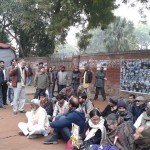

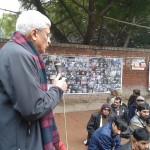
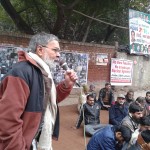

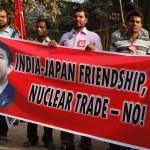
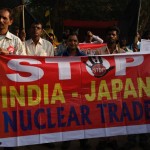



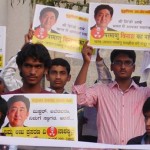

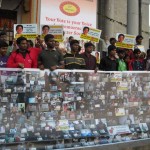

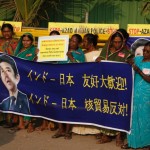


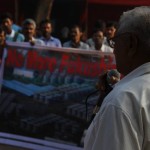
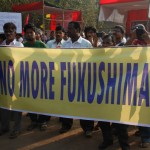

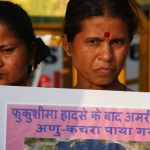






![Urge the Government of India to Support Banning of Nuclear Weapons [Sign Petition]](https://www.cndpindia.org/wp-content/uploads/2014/02/time-to-ban-150x150.png)